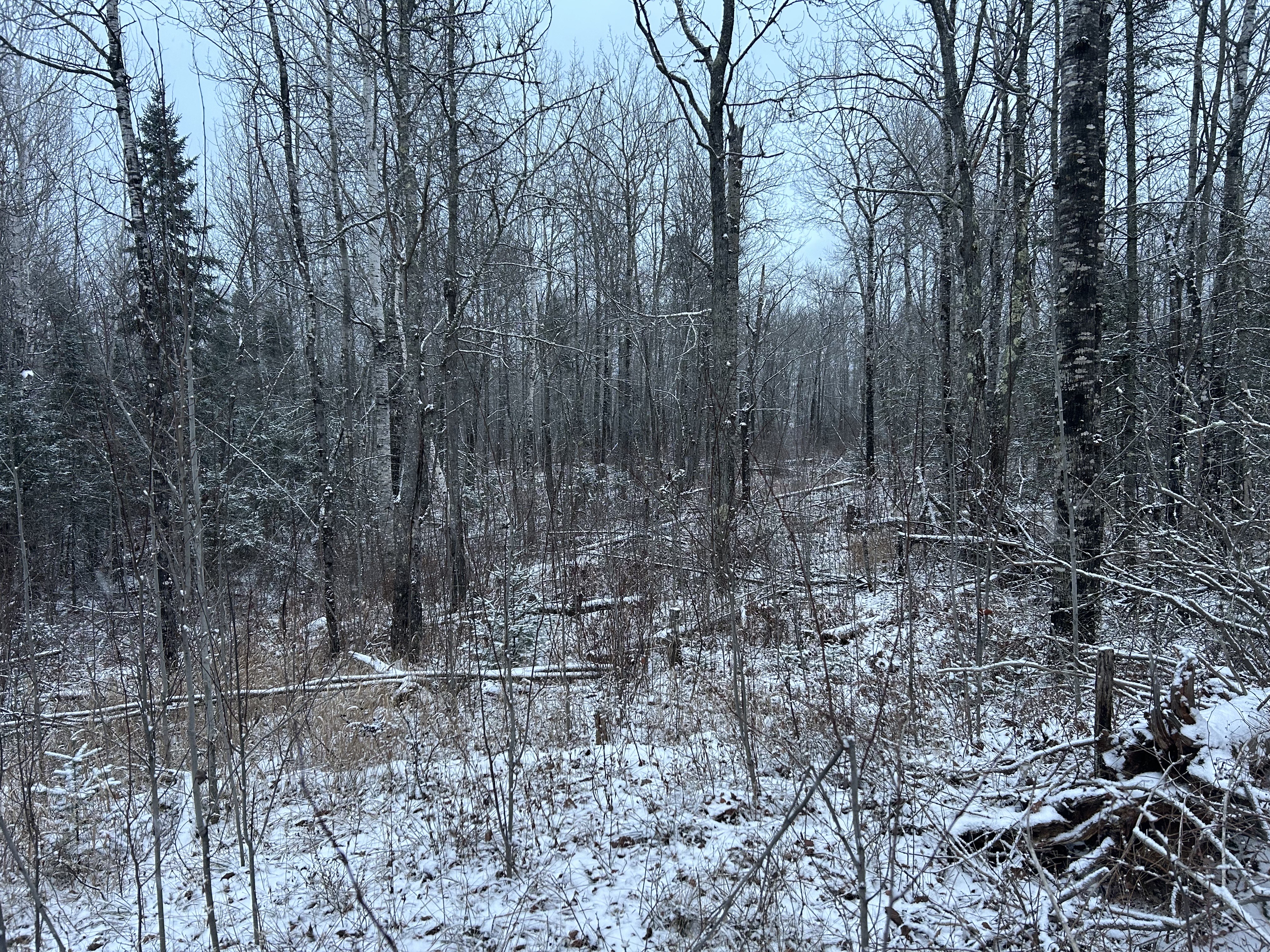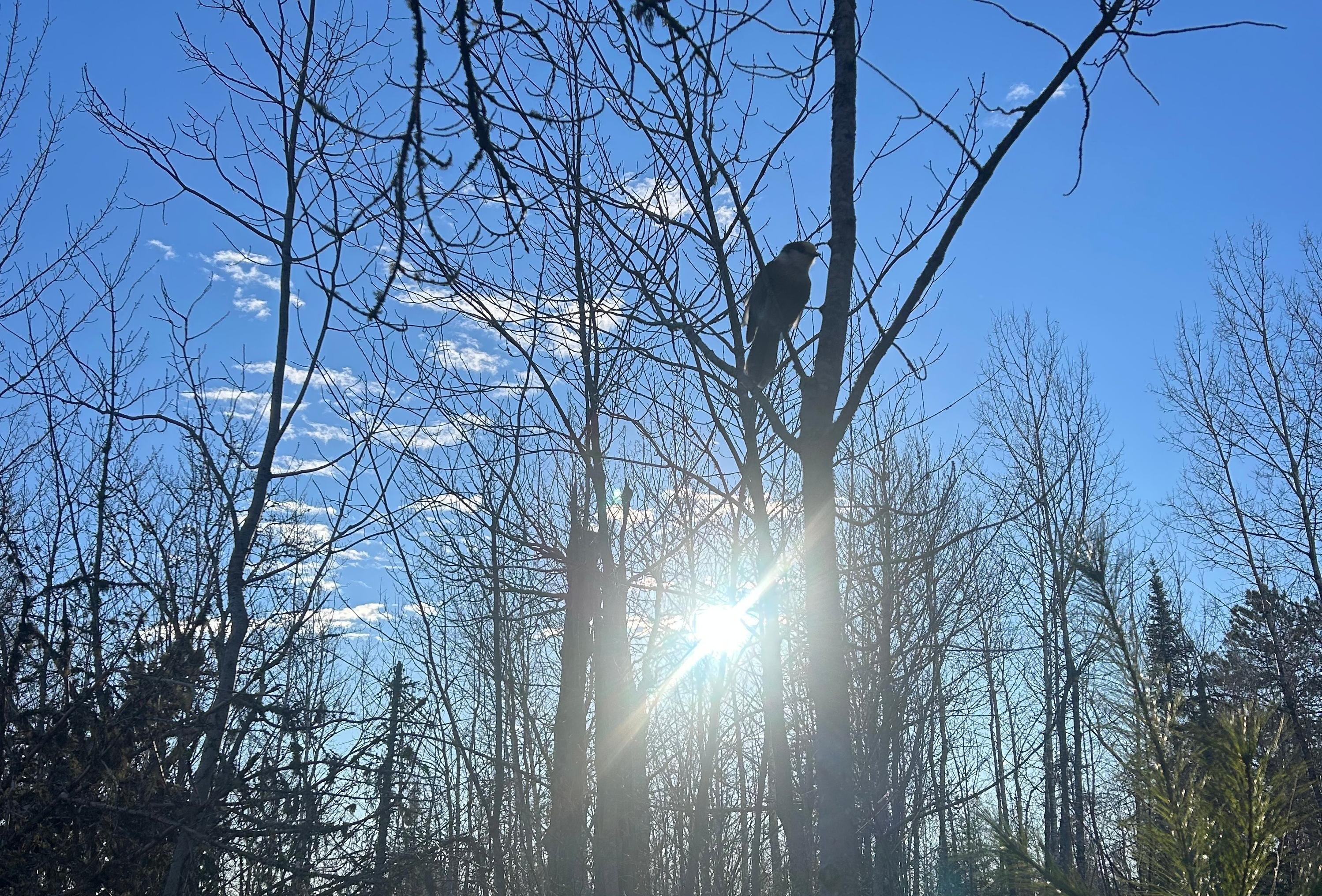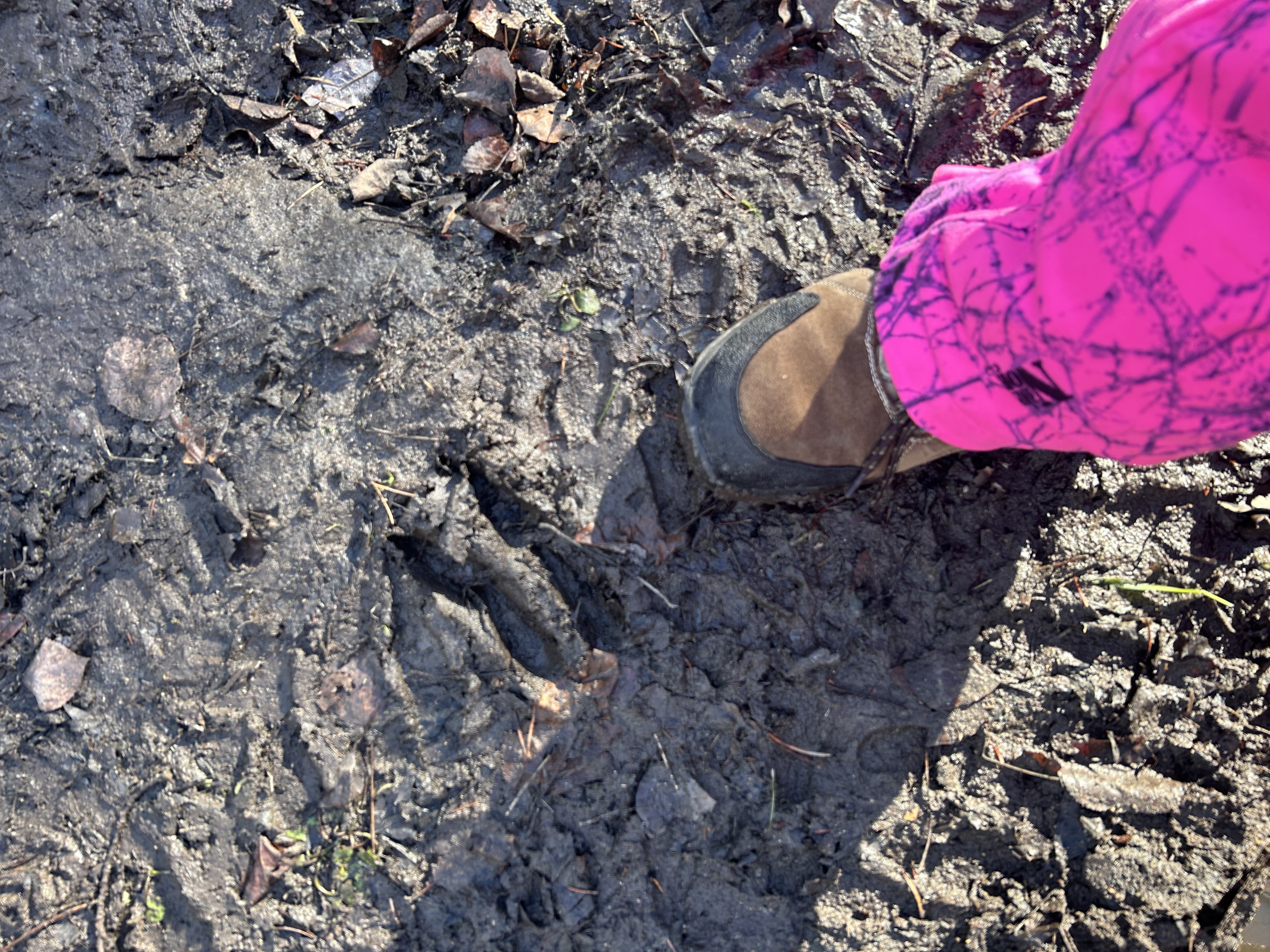
- Details
- By Kristen Lilya
Every fall, as soon as the air turned crisp and the leaves began to drop, my dad would come alive with joy. We cancelled all plans that happened to fall on the opening weekend of firearm deer hunting season in Minnesota - no questions asked.
Editor’s Note: In this personal essay, Native StoryLab’s Kristen Lilya (Ojibwe) reflects on the generations-old family tradition of deer camp. From her earliest memories in the woods to introducing her boys to the experience, she shares how hunting connects her to her family, her culture, and the land that sustains them.
Deer season started the holidays in our house. As a kid, I remember the hours when I sat beside my dad in silence, so still we could hear mice rustling through the leaves. Every squirrel, every bird, every sound became part of the rhythm of the woods. If I sniffled or coughed, my dad gave me a look that shouted in silence, “You just scared away every deer in Minnesota.” Then he’d crack a grin, and we’d both smile quietly to ourselves. It became our unspoken joke.
There were times I wanted to hang out with friends, play basketball, or do anything other than sit in a cold deer stand all day. The joy it brought my dad always encouraged me to go. His face brightened when the whole family was out there together. I saw him happy.
The Christmas when I got my first cell phone came with a thrill and a responsibility that carried a lot more weight than a new phone plan.
“Now that you have a phone, you can hunt by yourself,” my dad said. It was his way to tell me I was ready. I had just passed firearm safety, and now it was my turn to go solo.
 Photo by Kristen Lilya
Photo by Kristen Lilya
A Lesson in Fear and Respect
One of the first seasons hunting alone, I sat in my stand playing a game on my phone when I heard a low grunt. My heart pounded. This is it, I thought. The big one. I looked around, scanning the woods. Another grunt. My heart beat out of my chest. A few minutes passed by, and I saw what looked like a dog - a big one, with short hair, moving silently through the brush. The longer I looked, the more I realized it wasn’t a dog at all. It was massive, light brown, and almost invisible against the trees. I had no idea what I was looking at, but I knew it wasn’t a deer.
It disappeared as quickly as it came. I climbed out of my blind and walked, well, ran to my mom’s stand to tell her what I saw. A few weeks later, my grandma found mountain lion tracks in that same area. That’s when it hit me: My deer hunt took me a few heartbeats away from a mountain lion.
This experience reminded me that I wasn’t the only one out in the woods hunting. It reminded me that I needed to respect the forest and all the animals that called it home.
My First Deer
The quiet. The stillness. The connection to something bigger than myself. I had grown to love hunting.  Deer track on November 15th, 2025 Photo by Kristen Lilya
Deer track on November 15th, 2025 Photo by Kristen Lilya
One morning, I walked to my blind with an old Halloween pumpkin to leave out as bait. Halfway there, I saw a deer: big, beautiful, and close. My heart raced. I set down the pumpkin slowly and raised my firearm.
As soon as it was there, it was gone. I started to think maybe it was my imagination. I just saw this deer, and now it’s gone.
Disappointed, I made the rest of the walk back to my blind.
I’d already put down my pumpkin, but realized in my excitement that I didn’t make my offering. I stood there in the snow and headed towards the nearest tree I saw. I said a short prayer and placed my tobacco on the north side of the trunk. I started back to my blind, ready to sit for hours.
As I glanced down toward the pumpkin, I saw the deer. Again.
I didn’t see antlers, but I didn’t care at this point - I wanted this deer. I wanted to claim it as my ancestors did. I wanted to have meat in the freezer that we could eat all year. How my dad showed me.
It slowly walked.
I tried to breathe. I tried to remember everything my dad said about hunting.
I found brown in my scope. I found what I thought was the shoulder. I took the shot. My aim, slightly off, hit. I watched as the deer walked back into the wooded area.
I texted my dad two words, “I shot.”
He texted back immediately, “OK. Don’t move.”
I sat there trying to remember what to do next. My dad's words entered my mind. “After you shoot, watch the deer closely. Make sure you know where it is and don’t lose sight of it.”
I sat there trying to calm myself down.
When my dad arrived, we followed the blood trail together. When we found it, my dad knelt down first, looked up at me, and said, “It’s a buck.” In all my excitement, I hadn’t noticed the little nubs on its head.
I’ll never forget the pride I felt standing over that deer—the first one I’d ever harvested on my own. My dad guided me through field dressing with prompting questions that directed me to determine what to do. “What’s next,” he would ask as he and I talked through each step.
Then came the hard part: dragging it out of the woods. For a five-foot-tall, 135-pound girl, it felt nearly impossible. My dad helped a little, but he let me do most of it. It was my deer, and I had to earn it.
When we got back to camp, my mom already knew, thanks to our family group text. She met me with a big hug and the proudest smile. That night, we cooked the heart, and my dad ate the liver—his favorite. I kept the shell casing from that shot as a keepsake. The antlers still sit somewhere in my parents’ house.
After that, I wanted to be out there every second I could.
And I made sure nothing from that deer went to waste. For me, hunting has never been about trophies or photos—it’s about gratitude and respect for the wildlife.
Passing It Down
Now I’m 27, and I have two boys of my own. This year is their second deer camp, but their first one where they’ll truly be part of it — walking, exploring, and taking in the world around them. It’s how I grew up, fully confident there will always be a hunt, and the memories they create now are how I want them to remember our time together when it's hunting season.
We live far from my parents now, but still make the trip north every deer season. There’s something about being at deer camp: the campfire, the food, the laughter, the land that feels like home.
These days, my dad still hunts, and my mom stays back at camp to cook us hot meals. I know how much they love it when we all come home for the season to fill the woods with blaze orange and pink jackets, accompanied by family stories and laughter.
I can’t explain exactly what it is about deer camp. Maybe it’s the peace. Maybe it’s being with my family. Maybe it’s being on land. Maybe it’s sitting in silence with the Creator.
Whatever it is, it runs deep when I’m out hunting. It connects me to my ancestors, to my parents, and now to my sons. And for that, I’ll always keep coming back.
More Stories Like This
Native News Weekly (August 25, 2024): D.C. BriefsMonday Morning (March 2, 2026): Articles You May Have Missed This Past Weekend
Native News Weekly (March 1, 2026): D.C. Briefs
Scope Narrowed, Report Withheld: Questions Mount Over Michigan Boarding School Study
Zuni Youth Enrichment Project Announces Family Engagement Night and Spring Break Youth Programming
Help us defend tribal sovereignty.
At Native News Online, our mission is rooted in telling the stories that strengthen sovereignty and uplift Indigenous voices — not just at year’s end, but every single day.
Because of your generosity last year, we were able to keep our reporters on the ground in tribal communities, at national gatherings and in the halls of Congress — covering the issues that matter most to Indian Country: sovereignty, culture, education, health and economic opportunity.
That support sustained us through a tough year in 2025. Now, as we look to the year ahead, we need your help right now to ensure warrior journalism remains strong — reporting that defends tribal sovereignty, amplifies Native truth, and holds power accountable.
 The stakes couldn't be higher. Your support keeps Native voices heard, Native stories told and Native sovereignty defended.
The stakes couldn't be higher. Your support keeps Native voices heard, Native stories told and Native sovereignty defended.
Stand with Warrior Journalism today.
Levi Rickert (Potawatomi), Editor & Publisher
